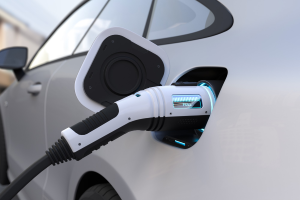With the rise of electric vehicles (EVs), one of the most common questions new and potential EV owners ask is: What does it cost to charge an electric car at a charging station?
While charging an EV is generally more affordable than filling up a gas tank, the cost varies depending on several factors, including location, charging speed, and network provider.
In this guide, we’ll break down how much EV charging stations cost, factors that impact pricing, and how to save money on charging your electric car. Whether you’re considering switching to an EV or just want to understand the costs better, this article will cover everything you need to know.
Table of Contents
ToggleFactors That Affect the Cost of Charge an Electric Car at a Charging Station
The cost to charge an electric car at a charging station isn’t the same everywhere—it depends on multiple factors, including:
- Charging Level (Speed & Efficiency) – Faster charging stations cost more per kWh.
- Location – Charging in urban areas or near highways can be pricier than in smaller towns.
- Time of Day – Some stations charge peak-hour pricing, similar to electricity bills.
- Network Provider – Different charging networks have different pricing structures.
- Battery Size – Larger batteries take longer to charge and cost more per session.
Now, let’s explore the different charging levels and their associated costs.
How Much Do EV Charging Stations Cost?
EV charging stations come in three levels, and each has a different price point based on speed and energy usage.
Level 1 Charging (120V Standard Outlet)
- Uses a regular household outlet, often found at home.
- Slowest charging option (3-5 miles of range per hour).
- Usually free if available in public places (rare at commercial stations).
- Best for overnight charging at home rather than public use.
Level 2 Charging (240V Public & Home Chargers)
- Found at shopping centers, office buildings, hotels, and apartment complexes.
- Faster than Level 1 (adds ~25-30 miles of range per hour).
- Cost to charge an electric car at a station: $0.10 – $0.30 per kWh.
- Average full charge cost: $8 – $12 (varies by battery size).
- It can also be installed at home for convenient overnight charging.
Level 3 Charging (DC Fast Charging / Superchargers)
- Found at highway rest stops, major urban areas, and Tesla Supercharger stations.
- Extremely fast charging (adds ~100+ miles of range in 20-30 minutes).
- Higher cost: $0.30 – $0.60 per kWh.
- Average full charge cost: $15 – $30 (varies by battery size and provider).
How Much Does It Cost to Use a Charging Station?
If you’re wondering how much it costs to use a charging station, the answer depends on whether you’re using a free, pay-per-use, or membership-based service.
- Free Charging – Some businesses, hotels, and workplaces offer complimentary Level 2 charging to customers.
- Pay-Per-Use Charging – Most public stations charge by kWh or by time (e.g., $0.30 per minute for Level 3 chargers).
- Membership-Based Charging – Networks like EVgo, Electrify America, and ChargePoint offer lower rates for members who pay a monthly fee.
For example:
- EVgo members pay around $0.31 per kWh, while non-members pay $0.39 per kWh.
- Tesla Supercharger pricing varies by location but averages $0.25 – $0.50 per kWh.
Comparing EV Charging Costs to Gasoline
Let’s see how the cost of charging an electric car at a station compares to traditional gas-powered cars.
Gas-Powered Car (30 MPG, $3.50 per gallon)
- 300 miles = $35 in fuel costs.
Electric Car (300-mile range, 75 kWh battery, $0.30 per kWh)
- Full charge = $22.50 (at a Level 3 fast charger).
Savings per charge: ~$12.50
If you charge at home with off-peak electricity rates or use free Level 2 chargers, the cost savings increase even more!
Tips to Save on EV Charging Costs
Want to lower your cost to charge an electric car at a charging station?
Here are a few ways to cut down expenses:
- Use Free Chargers – Hotels, malls, and some workplaces provide free charging.
- Charge During Off-Peak Hours – Some stations have lower rates late at night.
- Sign Up for Memberships – Networks like EVgo and Electrify America offer better rates for members.
- Plan Your Route Wisely – Apps like PlugShare and ChargePoint help find the cheapest charging stations.
By following these strategies, you can save hundreds of dollars annually on EV charging costs.
Future of EV Charging Costs: What to Expect?
As more people switch to EVs, charging infrastructure is expanding rapidly. Here are some trends that could impact future costs of charging an electric car at a station:
- More Free & Discounted Charging – Companies and municipalities are offering free or discounted charging to encourage EV adoption.
- More Home Charging Options – More homeowners are installing Level 2 chargers, which could reduce reliance on public stations.
- Dynamic Pricing – Some networks are experimenting with time-based pricing, similar to surge pricing for rideshares.
- Sustainable Energy Sources – As renewable energy expands, electricity prices for charging could become more stable and affordable.
Conclusion
So, how much does it cost to use a charging station? Here’s a quick breakdown:
- Level 2 Chargers – $8 – $12 per charge (best for daily use).
- Fast Chargers (Level 3) – $15 – $30 per charge (best for road trips).
- Home Charging (Level 1 or 2) – $5 – $10 per charge (most affordable long-term).




